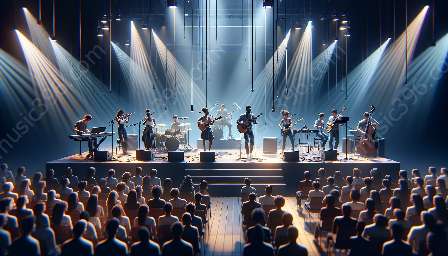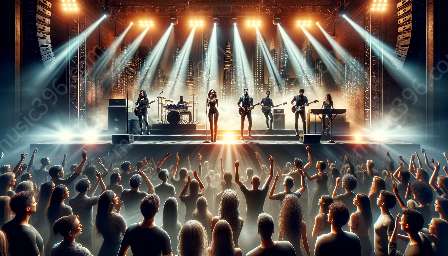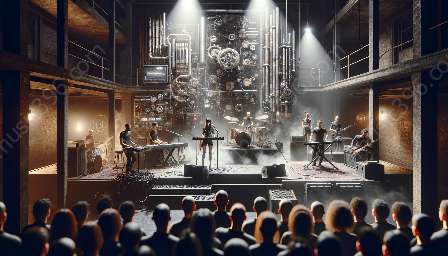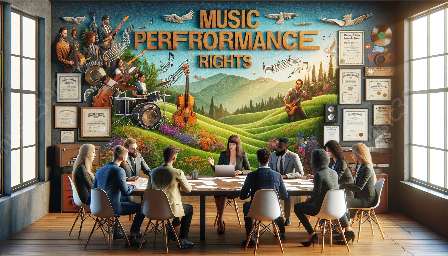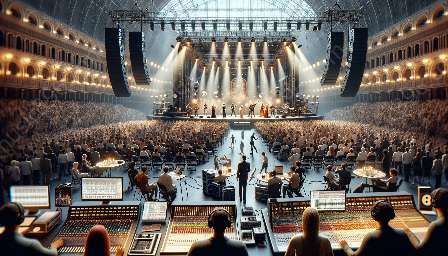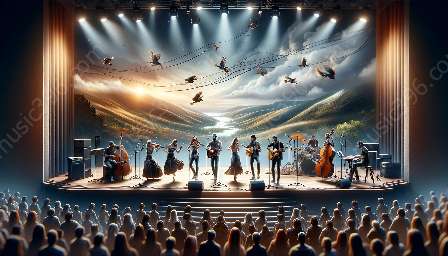Music performance management involves overseeing various aspects of live music events, including artist promotion, venue selection, and audience engagement. Marketing plays a crucial role in this process by influencing the success of music performances and the artists involved. In this topic cluster, we'll explore how marketing strategies impact music performance management and contribute to the overall success of live music events.
The Impact of Marketing on Music Performance Management
Marketing plays a pivotal role in driving audience engagement and promoting music performances. It involves creating awareness, generating interest, and ultimately driving attendance at live events. Effective marketing strategies can significantly impact ticket sales, brand visibility, and overall success of music performances.
Artist Promotion and Branding
For music performance management, marketing is instrumental in promoting artists and building their brand. This involves creating compelling promotional materials, leveraging social media platforms, and securing media coverage to increase the visibility of the artists. A well-executed marketing plan can enhance an artist's reputation, attract a wider fan base, and ultimately lead to successful live performances.
Targeted Audience Engagement
Understanding the target audience is crucial for successful music performance management. Marketing strategies help in identifying and reaching out to the right audience through targeted advertising, social media campaigns, and email marketing. By engaging with potential attendees and fans, marketing efforts can drive interest and boost attendance at music events.
Online and Offline Marketing Channels
Music performance management relies on a diverse mix of marketing channels to reach a wider audience. Online marketing channels such as social media, streaming platforms, and artist websites play a vital role in promoting upcoming performances and engaging with fans. Additionally, offline marketing tactics such as poster campaigns, radio advertisements, and partnerships with local businesses can further enhance the visibility of live music events.
Event Promotion and Ticket Sales
Marketing efforts are essential for promoting individual music events and driving ticket sales. This includes creating compelling event listings, utilizing promotional discounts, and partnering with ticketing platforms to reach potential attendees. Effective marketing strategies can create buzz around the event and entice audiences to purchase tickets, ultimately contributing to the success of music performances.
Building Partnerships and Sponsorships
Marketing plays a key role in fostering partnerships and securing sponsorships for music performance management. By effectively showcasing the value of music events, marketing efforts can attract potential sponsors and collaborators. These partnerships can lead to increased resources, enhanced event experiences, and broader exposure for the artists, contributing to successful music performances.
Data-Driven Marketing for Performance Optimization
Utilizing data-driven marketing techniques is crucial for optimizing music performances. Analyzing attendee demographics, ticket sales data, and audience feedback allows for informed marketing decisions that can enhance future performances. By leveraging data, music performance management can continuously improve marketing strategies and deliver more impactful live events.
Conclusion
The role of marketing in music performance management is undeniable. From artist promotion and audience engagement to event promotion and data-driven optimization, marketing strategies significantly impact the success of live music performances. By understanding the impact of marketing on music performance management, stakeholders can implement effective strategies to elevate the overall experience for both artists and audiences.


